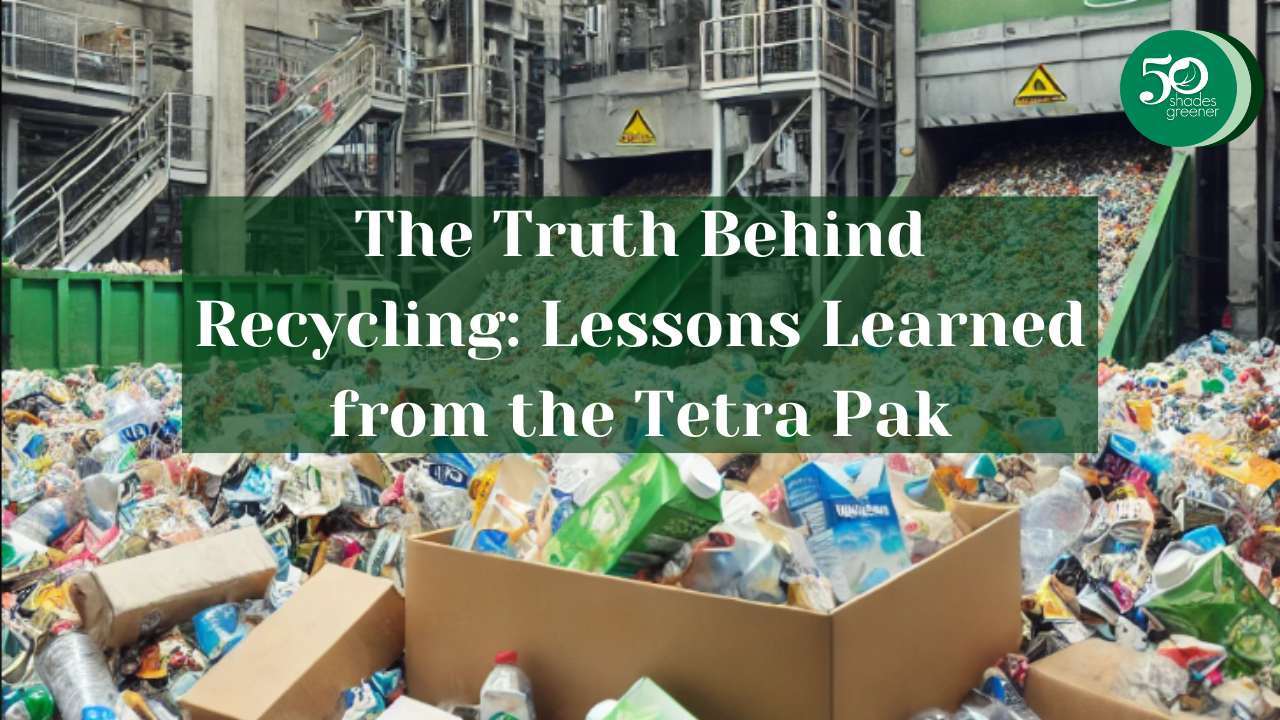The Truth Behind Recycling: Lessons Learned from the Tetra Pak

Recycling: The Great Green Illusion?
Right off the bat, let’s get one thing straight. Recycling is not the sustainability saviour we were promised. For decades, we have been told a lovely narrative: that recycling is the key to sustainability. We’ve been encouraged to sort our waste, rinse out our plastics, and drop our empty cartons into the right bin, believing that we’re playing our part in saving the planet. Hate to be the one to break it to you, but this whole system is flawed. “Reduce, Reuse, Recycle” was always meant to be a hierarchy, yet somehow, we’ve been conditioned to skip the first two and jump straight to “Recycle” like it’s a get-out-of-guilt-free card. Who’s to blame? Let’s take a quick history lesson….
What if we told you that this narrative was designed to shift responsibility away from the real culprits—corporations and manufacturers—and onto us, the consumers? What if, instead of being the solution, recycling is actually a very cleverly marketed disguise for the...
The Very Questionable Sustainability of Tetra Pak

Have you ever wondered about Tetra Pak cartons? They are becoming more and more common on our shop shelves - just how green a solution are they?
The environmental downsides to plastic bottles are mostly well known: they are expensive to recycle, recycling rates are low, there are limited options for the use of recycled plastic material, and plastic litter can wreak havoc with the environment. So, any person or business who are environmentally conscious, of course, would try to reduce and eliminate their plastic use.
Because of these considerations there has been an increase in metal and cardboard being used for drinks and liquid containers.
The rise in popularity of cardboard cartons, however, which are really complex composites of plastic-lined cardboard and aluminium, is a deeply imperfect solution.
Reducing plastic waste is only part of the problem: if plastic is replaced by containers that are not easy to recycle either then the replacements may not lead to an environmentally s...
Tetra, Glass or Plastic - Which is best?
This is difficult to determine, because there is more than one issue at stake.
In terms of Co2 emission at the production stage, Tetra Pak cartons are the winner, followed by plastic, then aluminium, and surprisingly then glass is the worst.
Glass is the highest producer of carbon emissions because of what energy is required to produce it BUT if you are reusing the glass bottles, their shelf life is much greater than the other materials, and so it could be considered a more sustainable product.
In terms of plastic pollution and the ability to do closed loop recycling, glass and aluminium are the winners. And as you recycle them more times, their carbon emissions start to fall back down towards cartons and plastic. As per Ethical Consumer, it depends on how the item is going to be used and then disposed of.
Some are better in terms of their carbon emissions and others tie into the closed loop of reuse/recycling and affecting waste output.
Glass and Aluminium
- They can be recycl...


